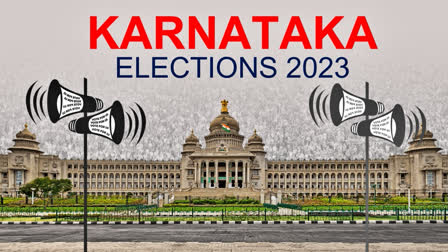Bengaluru: The three major contenders for power in Karnataka- Congress, BJP and JDS have released their manifestos, the latest being the Congress on Tuesday. A slew of welfare measures were announced by all three parties for the denizens of Karnataka.
All three political parties have announced schemes targeting women and farmers; they have also announced several guarantees for Below Poverty Line (BPL) card holders. While the Congress has announced 10 kg free rice through Annabhagya Yojana, free travel for women in state government buses and 200 units of free electricity through Griha Jyoti Yojana, the BJP did not fall behind in the race.
The saffron party has promised three LPG cylinders and five kg millet to all BPL families, free of cost. The BJP has also promised an Atal Aahara Kendra in every ward of municipal corporations to provide affordable and quality food across the state. 300 Mukhya Mantri Annapoorna canteens to be setup across the state, it said in its manifesto.
The JDS did not shy away from welfare promises. It has announced Rs 6,000 for six months for pregnant women, five free cooking gas cylinders and two lakh rupees for young women marrying agrarian youths.
Also read:'JhootLoot BJP Moneyfesto': Congress questions BJP Karnataka’s 2023 poll manifesto
Ironically, the incumbent BJP was one of the most vocal voices opposing 'welfare' schemes announced by parties in their manifestos, terming them 'revdis' (meaning sugar candies). The Modi government at the center has time and again pointed out the economic ill effects of 'freebies', reasoning that it leads to fiscal strain, thereby increasing the burden of taxpayers. On the contrary, the BJP manifesto does reel out 'freebies' for Karnataka voters.
The Nandini-Amul controversy that has become an election issue followed by the incumbent BJPs' recent step to introduce the Gujarat milk cooperative to the southern state, was also countered by the BJP by promising half-litre Nandini milk daily to every BPL family in the state.
The 'freebies' debate made headlines in the run-up to the 2020 Delhi Assembly elections. The BJP tried to counter Kejriwal's 'welfare politics' by dismissing such schemes as 'hand-outs' meant to suit the political class ahead of the elections but leads to a burden on the exchequer. The Supreme Court also ruled that such 'economic benefits' promised by the political parties should be rationalised.
